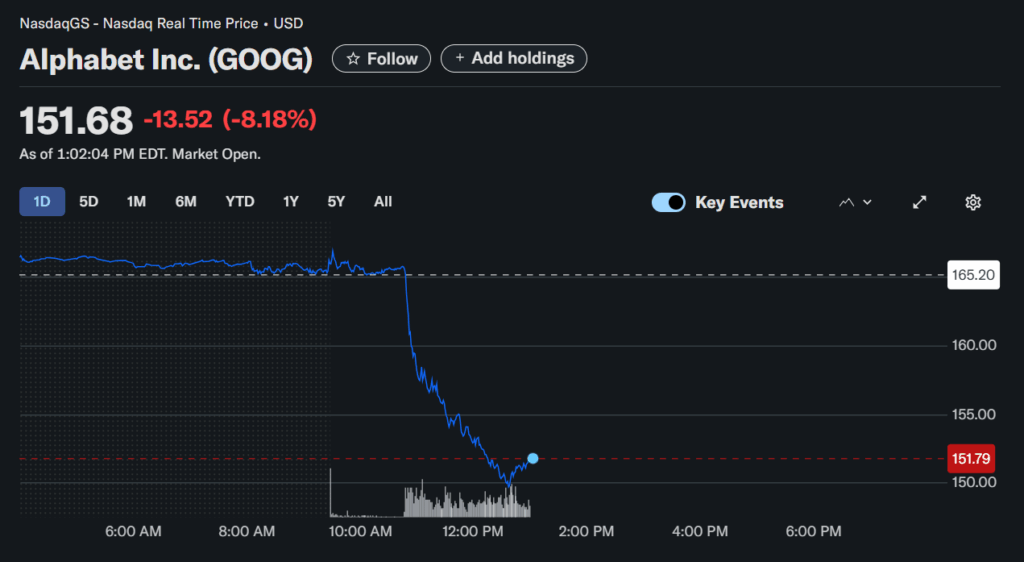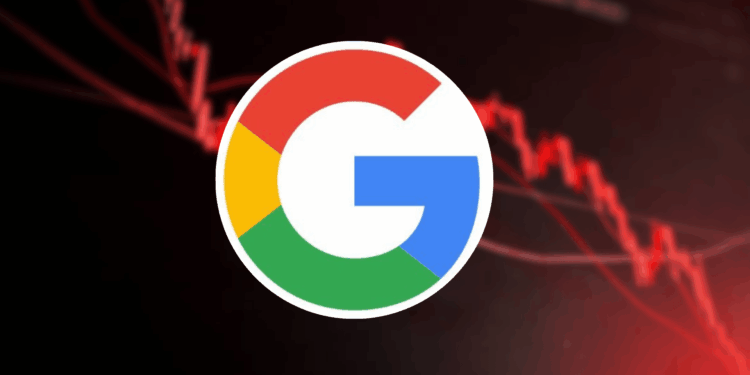- Apple may consider integrating AI search engines like Perplexity into Safari, shaking up its $20 billion deal with Google.
- Google faces increasing pressure as Apple explores AI-powered search tools amid declining Safari searches.
- With AI search engines gaining traction, Google’s dominance in the search market could be at risk.
Google shares took a nosedive, shedding over 6% on Wednesday, after Apple’s senior VP of services, Eddy Cue, hinted that the tech giant is toying with the idea of integrating AI search engines like Perplexity into its default Safari browser. The revelation, as reported by Bloomberg, surfaced during Google parent Alphabet’s ongoing antitrust trial.
Last year, a federal judge ruled that Google’s search business operated as an illegal monopoly. Amid the trial, it came to light that Google shells out a staggering $20 billion annually to keep its search engine as the default option on Safari — a sweet deal that Apple is now rethinking.
Alphabet Inc. (GOOG) – A Sharp Decline
Cue’s testimony dropped another bombshell: for the first time last month, Apple noticed a dip in search queries through Safari. Why? Consumers are increasingly gravitating toward AI-powered search tools. Apple’s already got ChatGPT as part of its Apple Intelligence platform, but the company’s looking to expand its AI repertoire.
Cue made it clear that Apple isn’t about to toss Google aside anytime soon. The $20 billion payout is a significant chunk of Apple’s Services revenue, which hit $96.1 billion in 2024. Yet, he also hinted that AI search apps might eventually supplant conventional search engines.
Google’s AI Scramble
With Apple potentially opening the door to AI search engines, Google’s scrambling to keep its edge. The search titan has already rolled out AI Overviews — generative AI summaries for search queries — and is currently trialing its AI Mode, a feature that mimics AI-centric search apps like ChatGPT and Perplexity.
Also in the mix is Gemini, Google’s own AI search alternative. It’s not baked into standard Google Search but stands as a separate AI-powered option. Meanwhile, Microsoft isn’t sitting idly by. It’s pushing its own AI search feature, Copilot, in a bid to snag users looking for smarter search solutions.
The Apple-Google Revenue Tango
Apple’s not just playing with AI for fun — the $20 billion from Google is a critical revenue stream. That sum contributes heavily to Apple’s Services business, a segment that hauled in $96.1 billion last year.

But Google’s exclusivity deal with Apple isn’t the only one in its arsenal. It’s also inked agreements with Samsung, ensuring its search engine and apps remain front and center on Android devices.
For now, Google’s grip on the search market remains intact. But as AI search engines gain traction, the ground beneath the tech behemoth may not be as solid as it once seemed.

















